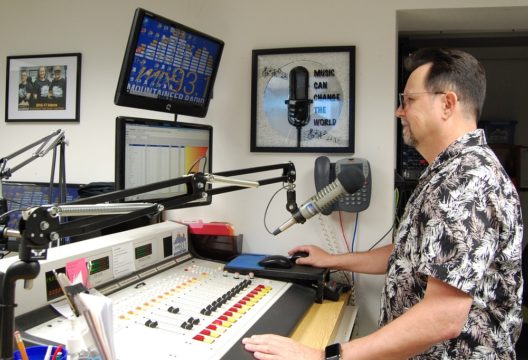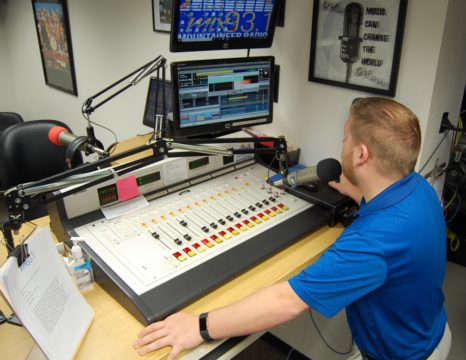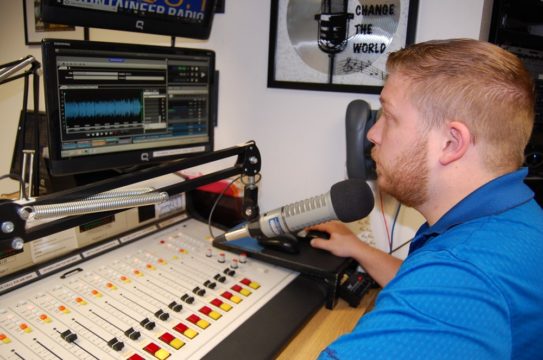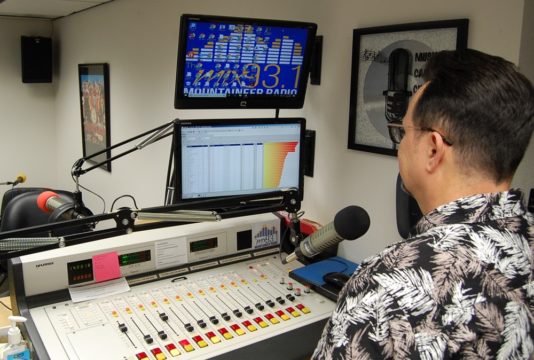No matter where you go in the world, you can find RCS software hard at work, enabling stations to create that unique sound with GSelector, and execute their own variety of workflow with Zetta. Not only is RCS busy in exotic locations such as New York, Paris, Rio de Janeiro and Istanbul, but also in less familiar destinations such as Wilburton, Oklahoma.
Here you’ll find Eastern Oklahoma State College, home of Mountaineer Radio. “The Mix” 93.1 FM serves the Red Oak, Wilburton, Hartshorne, McAlester area, while 104.9 FM serves the towns of Broken Bow and Idabel. These stations offer the “Best Mix” music programming that appeals to most audiences and ages. Music genres include top 40, light rock and light classic rock, adult contemporary, pop, and some of today’s cross-over country.
Many colleges and universities have their own radio stations, but one of the things that makes these two unique is that they are licensed as commercial. As General Manager and afternoon show radio personality Doug “Dougo” Sims explains, what seemed to be a liability at the start has turned out to be a huge asset.
“We had applied for a non-commercial FM license, but the one channel in our area was awarded to another applicant. We were disappointed, but then applied for, and were awarded a commercial license. Over the years, with university-wide financial downsizing, we’ve seen our operating budget cut by about 40 percent. Were it not for our advertising revenue, the university might have closed the stations down by now.”
 Students in Eastern’s Mass Communication program are involved with the radio station, serving as interns and on-air personalities. They also produce news and weather reports, public service announcements and other programming. Students have the opportunity to select music, produce their own show, help with live remotes and provide play-by-play and color commentary during sports broadcasts.
Students in Eastern’s Mass Communication program are involved with the radio station, serving as interns and on-air personalities. They also produce news and weather reports, public service announcements and other programming. Students have the opportunity to select music, produce their own show, help with live remotes and provide play-by-play and color commentary during sports broadcasts.
As Sims recalls, when he started looking three and a half years ago, there were some specific criteria that he had in mind as he was selecting automation software for the stations. “It had to be user-friendly, easy for students to train on and to be affordable. We also wanted great features.”
Sims and his team looked at five different programs, but in the end, they settled on GSelector and Zetta.
“For us, the most important feature of GSelector is the voice tracking. It’s used several times throughout the day.” And while it’s easy to customize pages with Zetta, Sims has made simplicity his goal. “We use one setup for everyone, it helps keep things consistent. There are three live shows every day, and students step in to run things occasionally, so it has to be user friendly.”
For those times when things don’t go as they should, Sims give high marks to the RCS tech support team. “When we call with questions or issues, they’re always very helpful, and we get the problem resolved immediately. That’s important for us, because we have a small staff, and things can get backlogged pretty quickly if one person needs to spend a lot of time figuring out what’s wrong.”
In April, Sims and the Mountaineer Radio staff visited RCS in their booth at the Oklahoma Association of Broadcasters convention in Tulsa. Sims took an immediate liking to Zetta2GO, a suite of applications that lets you control your Zetta Automation/Playout system from a smartphone or tablet. You can manipulate what’s on the air from any place with an Internet connection. “I’m especially excited about the potential to control Zetta while doing a remote broadcast,” adds Sims.


